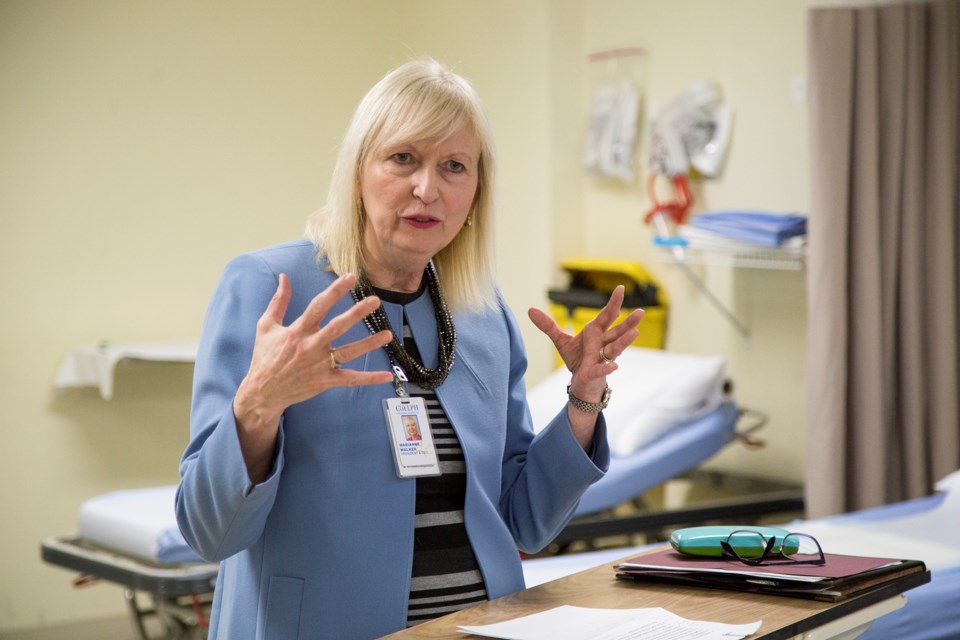Guelph General Hospital is taking in COVID-19 positive patients from other hospitals but its president and CEO says the hospital can also send its own patients to other hospitals if need be.
Hospital president and CEO Marianne Walker said Emergency Department visits are down about 24 per cent from the same time last year, while the Intensive Care Unit is seeing about the same number of people per day admitted as the same time in 2020.
That means the ICU, which often sees the most seriously ill patients at the hospital, is often full.
“We are running many times at a hundred per cent. We are right now,” said Walker of the ICU volume.
Walker said in an interview that the hospital has taken in some patients from other jurisdictions as part of a provincial ICU system of care. She said the system is not a one-way street and is working quite well.
“We respond by taking patients from other communities when we have beds available,” said Walker. “Another hospital ICU, if they are not over capacity and, in turn we should be in the same situation, we would be transferring our patients to an ICU bed outside of our community.”
She said lately the hospital often has between eight and 12 COVID-positive cases per day. That number does not necessarily line up with the number of hospitalized patients in Guelph that is reported daily by WDG Public Health because it only considers those who live in Guelph and does not count those that are brought in or who live in Wellington County or beyond.
“Those could be people who live in Fergus or Cambridge or Kitchener,” said Walker.
Earlier this year the hospital received 20 new ventilators, which Walker said are being put to use.
“We had ordered them very early on and our foundation supported us on that,” said Walker. “They are up and running, the staff has been trained and we are utilizing them.”
The new Emergency Department temporary structure is now open. It houses the waiting room, triage and reception desk while those areas inside the hospital are being renovated.
“We had some growing pains as we first opened learning the new flow but it seems to be working well now,” said Walker of the portable.
The hospital has once again altered its visitation policy to only allowing essential care partners to enter. A similar policy was in effect during the first wave of the pandemic to reduce further spread of COVID-19.
“They are individuals who provide that ongoing care or psychological support or assistance with patients who are wandering and where they really need them there for that healing process,” said Walker.
The birthing unit still allows a partner to come in during births and Walker said palliative care allows more than one visitor, two at a time.
“We know that is difficult for many families but we can arrange virtual visits and we have iPads and ways to support families to stay connected with loved ones who are in hospital,” she added. “We are still ensuring that if a patient really needs their family they are able to come in.”
Walker said the 24 per cent drop in Emergency Department visits is due to some people not coming in when they first need help and instead waiting until they get much sicker. That, in turn, leads to more people filling up the ICU.
“If people are sick I absolutely encourage them to come in,” said Walker. “The clinicians are telling me some people are still waiting and it’s very important they get the care they need.”
